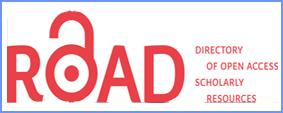MUHAMMADIYAH: CONTESTING IDEOLOGIES BETWEEN PROGRESSIVE ISLAM AND TRADITIONAL
Abstract
The research focuses on examining the dynamics of variants of Islamic thought in Muhammadiyah, especially progressive Islamic thought and conservative Islam. The main objective of this research is to identify how the contestation model of the two variants strengthens its hegemony. To achieve this goal, library research was carried out using qualitative-descriptive-analytical methods and utilizing two approaches, namely historical perspectives and sociological knowledge. Based on the available literature, it is found that two tendencies of thought in Muhammadiyah, namely Progressive Islamic thought and Conservative Islam, contradict each other in areas which in the context of Muhammadiyah are closely related to the ideological dimension, namely the methodology of thought and thought construction. Contestation in this aspect has implications for the emergence of a more practical contestation, namely the efforts to market their ideas and beliefs through organizational structural and cultural channels outside the organizational authority.
References
Abdullah, Amin, (2012). Islamic Studies in Higher Education: an Integrative-Interconnective Approach. Cet. III. Yogyakarta: Student Library.
Abdullah, Amin, (2019). Fresh Ijtihad: Manhaj of Islamic Thought of Muhammadiyah in the Era of Disprruption. Yogyakarta: Muhammadiyah Voice.
Abdurrahman, Moeslim, (2003). Islam as Social Criticism. Jakarta: Erlangga.
Amar, Faodzan, et al, eds, (2012). Reactualization and Contextualization of Islam Advancing in the Middle of Global Civilization. South Jakarta: Al-Wasat Publishing House.
Aminudin, (2019). “Islam Progresif: Telaah Atas Pemikiran Omid Safi”, Farabi Jurnal Pemikiran Konstruktif Bidang Filsafat dan Dakwah, Vo. XVI No. 2.
Boy ZTP, Pradana. Defending Pure Islam. Yogyakarta: Muhammadiyah Voice, 2016.
Eriyanto, (2006). Discourse Analysis: An Introduction to Media Text Analysis. Cet. V; Yogyakarta: LKIS.
Fathoni, Farid, (1990). Birth in question: One-fourth of the Muhammadiyah Student Association. Surabaya: Bina Ilmu.
Furqan, (2012). "The role of Muhammadiyah in stemming the flow of thoughts on secularism, pluralism, and liberalism (leadership period 2000-2010)". Thesis. Surakarta: Masters in Islamic Thought, Postgraduate Program at the Muhammadiyah University of Surakarta.
Furqon dan Syamsul Hidayat, (2012). “Peran Muhammadiyah Dalam Membendung Arus Pemikiran Sekulerisme, Pluralisme, Dan Liberalisme (Periode Kepemimpinan 2000-2010)”, Tajdida X, No. 1.
Hilali Basya, Muhammad, (2020). Muhammadiyah and Salafism in the Transitional Period of Indonesian Democracy: Resistance of Muhammadiyah Scholars to Islamic Revivalism. Yogyakarta: Muhammadiyah Voice.
Masykur Musa, Ali, (2011). Nationalism at the Crossroads: NU's Struggle and Indonesian Nationalism. Jakarta: Erlangga.
Munir Mulkhan, Abdul, (2020). Marhaenis Muhammadiyah. Yogyakarta: Galang Press.
Najib Burhani, Ahmad, (2016). Muhammadiyah Progressed: Shifting from Puritanism to Cosmopolitanism. Bandung: Mizan.
Najib Burhani, Ahmad. Muhammadiyah Java. Cet. II. Yogyakarta: Muhammadiyah Voice, 2016.
Nashir, Haedar, (2017). Understanding the Muhammadiyah Ideology. Yogyakarta: Muhammadiyah Voice.
Noer, Deliar, (1980). Islamic Modern Movement in Indonesia 1900-1942. Jakarta: LP3ES.
Nur Fuad, Ahmad, (2015). From Reformism to Transformative. Malang: Intrans Publishing.
Nurhayati, et al, (2018). Muhammadiyah: In the Perspective of History, Organization and Value Systems. Yogyakarta: Trust Media Publishing.
P Guruanto, Hadi. & Hamdan Juhannis, (2018). Muhammadiyah Pluralists: Relationship between Muslim Puritans, Christians, and Aluk Todolo in Family Education and the Tongkonan Philosophy. Cet. II. Surakarta: Muhammadiyah University Press.
Rais, Amien & M. Syukriyanto AR, et al., 1 Century Muhammadiyah Istiqomah Stress Christianization and Liberalism. Yogyakarta: MTDK-PPM, 2010.
Shihab, Alwi (2016). Blocking the Flow: The Muhammadiyah Movement's Response to the Penetration of Christian Missions in Indonesia. Yogyakarta: Muhammadiyah Voice.
Copyright (c) 2020 Mursalim Munir

This work is licensed under a Creative Commons Attribution-NonCommercial 4.0 International License.




.png)









